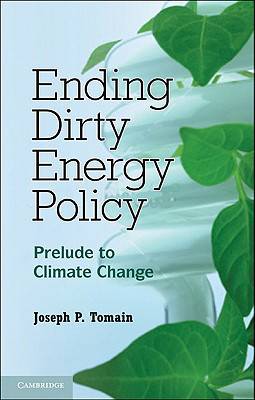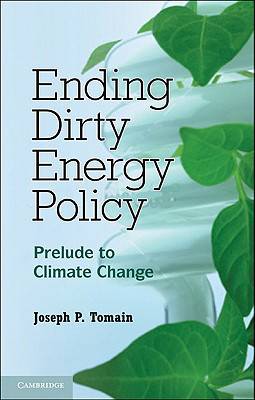
- Afhalen na 1 uur in een winkel met voorraad
- Gratis thuislevering in België vanaf € 30
- Ruim aanbod met 7 miljoen producten
- Afhalen na 1 uur in een winkel met voorraad
- Gratis thuislevering in België vanaf € 30
- Ruim aanbod met 7 miljoen producten
Zoeken
€ 53,45
+ 106 punten
Uitvoering
Omschrijving
Climate change presents the United States, and the world, with regulatory problems of a magnitude, complexity, and scope unseen before. The United States, however, particularly after the mid-term elections of 2010, lacks the political will necessary to aggressively address climate change. Most current books focus on climate change. Ending Dirty Energy Policy argues that the country will not adequately address climate change until we transform our fossil fuel energy policy. Yet there are signs that the country will support the transformation of our country's century-old energy policy from one that is dependent on fossil fuels to a low-carbon energy portfolio. A transformative energy policy that favors energy efficiency and renewable resources can occur only after we have abandoned the traditional fossil fuel energy policy, have redesigned regulatory systems to open new markets and promoted competition among new energy providers, and have stimulated private-sector commercial and venture capital investment in energy innovations that can be brought to commercial scale and marketability.
Specificaties
Betrokkenen
- Auteur(s):
- Uitgeverij:
Inhoud
- Aantal bladzijden:
- 320
- Taal:
- Engels
Eigenschappen
- Productcode (EAN):
- 9780521127851
- Verschijningsdatum:
- 20/06/2011
- Uitvoering:
- Paperback
- Formaat:
- Trade paperback (VS)
- Afmetingen:
- 152 mm x 226 mm
- Gewicht:
- 453 g

Alleen bij Standaard Boekhandel
+ 106 punten op je klantenkaart van Standaard Boekhandel
Beoordelingen
We publiceren alleen reviews die voldoen aan de voorwaarden voor reviews. Bekijk onze voorwaarden voor reviews.







